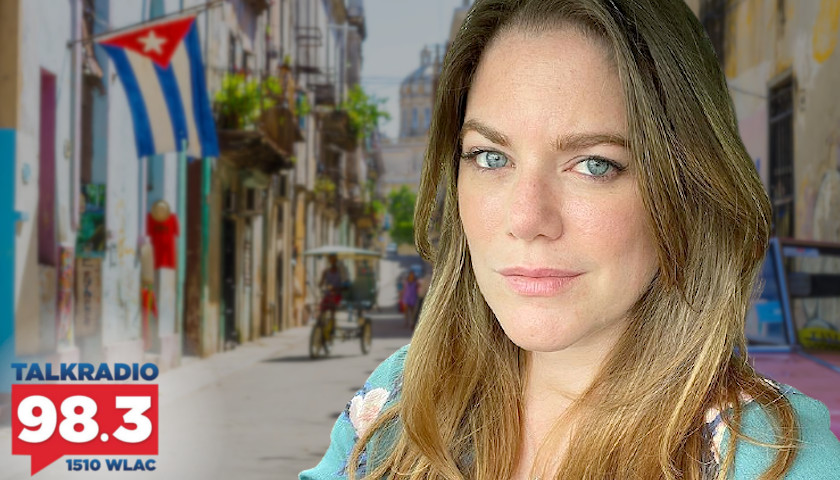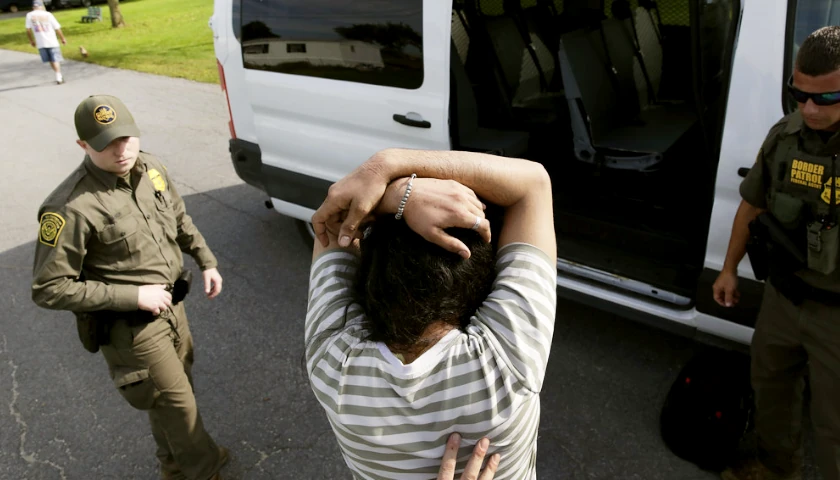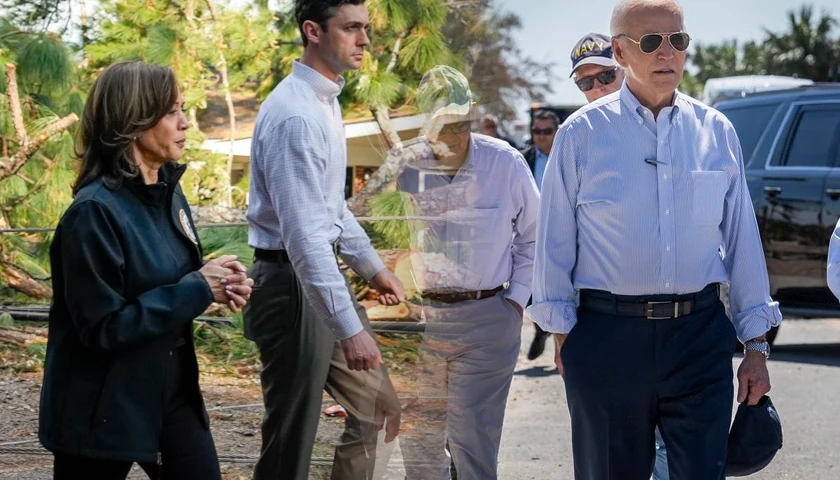Live from Music Row Tuesday morning on The Tennessee Star Report with Michael Patrick Leahy – broadcast on Nashville’s Talk Radio 98.3 and 1510 WLAC weekdays from 5:00 a.m. to 8:00 a.m. – host Leahy welcomed Gelet Martínez Fragela who is the founder of ADN Cuba to the newsmaker line to explain her escape from Cuba in the 90s, the world’s incorrect view of Cuba, and the need for people to express themselves.
Leahy: We welcome to our microphones, a Cuban political refugee, journalist, and founder of ADN Cuba, Gelet Fragela. Good morning, Gelet. Did I get the name correctly?
Fragela: That’s correct. Good morning. Thank you so much for inviting me to your show.
Leahy: We’re delighted to have you on here. Tell us your story first. Were you born in Cuba?
Fragela: Yes. In fact, I was born in Cuba. I left Cuba when I was nine years old as a political refugee with my family. We were exiled in Costa Rica. And then after many years, I live in Costa Rica and then I came to the U.S.
My family like many other families in Cuba did not agree with the government. My grandfather was a political prisoner. He was caught. He was sent to prison during the Bay of Pigs invasion. And what happens when somebody in your family is taken as a political prisoner it does not only affect your relative, it affects your entire family.
It affected their life. My grandmother, who was a biologist, was never able to teach again. She was never able to work again as a biologist. And so it was a very difficult situation for everybody in my family.
My father was a lawyer and he got into a lot of arguments with the Cuban regime. It’s too often we see among so many of us Cubans the same story of the separation of the families that they were forced to exile.
And they pass by when you didn’t even have the opportunity to meet some of your relatives. Most of my family left in the 60s, and I was able to only meet them in the 90s when I was able to leave Cuba in 1994.
Leahy: Tell us about your exit from Cuba in 1994. You were nine years old. Where did you live in Cuba? And how did you end up in Costa Rica?
Fragela: Yes, I lived in Cuba in Havana. I’m actually from my family, from the Center of Cuba. It’s a province called Camagüey. But we were living in Havana at the time. And I call it an escape because you escape from Cuba in many senses.
There’s a huge short deal of trying to come up with ways to leave the country because Costa Rica gave us the political refugee at that time. We have families, as I mentioned before, living for decades in the U.S. and trying to bring us all to live with them.
And they were able to negotiate with the Costa Rican government visas. And so for many months, we were waiting for those visas to arrive in preparing all the documentation for us to leave Cuba as political refugees.
And as I mentioned, I have a website that is an independent news site now that I founded a few years ago. And the main focus of our work is covering issues in Cuba, human rights violations, and the daily life of Cubans.
And because of that I that very simple work that would not put anybody in prison in any Democratic society, our journalists on the island are constantly persecuted and constantly taken to prison.
We have journalists several under arrest right now after the protests of July 11. But way before that, we had other journalists that were sent into prison, the waiting trial for the simple act of even participating in a protest or covering a protest.
Or freely assembling with others. It’s a really difficult situation that I don’t think a lot of people have been this aware of for many years now.
Leahy: I’m looking at your site right now. It’s very impressive. It’s adnCuba.com. And there’s a little toggle switch up at the upper right-hand corner. You can choose whether to read it in Spanish or in English. And so ADN, is that how you say it in Spanish?
Fragela: You say ADN, just like you would DNA in English. And the name of the site we can for this idea of really discovering and telling Cuba from its diversity and what we call diversity or a list type of diversity we’re interested in is a diversity of ideas.
Because for far too long that Cuba has been under a military dictatorship, this military dictatorship has attacked human diversity. They needed to crush anyone who has different ideas. And to do this, the regime engaged in a form of political cleansing of the population.
Not only by the method of indoctrination even from the school system, by absolutely controlling the present narrative, allowing an only one-party system, and persecuting those with different or challenging ideas or criticism towards the government and forcing them into exile.
And perhaps one of the most powerful weapons of coercion Cuba uses is the psychological torture it has inflicted upon its people on the island by humiliating them and shaming anyone who challenged the revolution. So they want to send to the world this idea that we all support the revolution and that they had popular support.
And a lot of people have confused longevity with legitimacy, which is why I publish here in Florida about the legitimacy of the Cuban regime and that it should no longer be considered a legitimate government under the law.
Leahy: I noticed that your very nice website adnCuba.com Founded in July of 2017 by a digital media Corporation called Ulloo Media, Inc. Is that you or do you have some backers for this?
Fragela: Yes, that is me. All the media is a company I had four years ago, years before we founded ADN and it’s a production company. And we produce documentaries. We produce some Spanish TV shows in the past. So it’s a media company.
And ADN was created by that company. And initially, we began with the idea of producing only videos and we focused a lot on just producing videos inside the island and telling the story of what human life was inside the island through image.
And I think that’s what allowed our growth in such a fast way because there are not many news organizations or even groups actually telling stories through video. There’s something important to remember.
Cubans only had Internet on their phones up until 2018. Before that Cubans could not even watch videos on their phones. They could not even look at those stories or access the internet. After 2,018, when the regime allowed Cubans to have Internet on their phones, a lot of people begin connecting, broadcasting live, even from Cuba.
You can govern by fear, but people are always going to have the need to express themselves. To tell their stories and to share the stories with the world. And that’s what they haven’t been able to control.
And they try to control it by controlling the internet or with the shutdowns that going that are happening in Cuba systematically. But the need is there for everybody to connect and to tell the stories not only to the outside world but also the story inside Cuba.
Cuba is the result of decades of cancel culture where we don’t even know our own history. We don’t even know what happened before 1959. We don’t know what has happened, and the whole picture of all the crimes that have been committed during the revolutionary process, the Castro revolution.
They have systematically covered up all of what’s happened in Cuba. And when you take a country and the history of people away, when you manipulate it, when you delete it, people commit the same mistakes all over and over because they don’t really know what happened as they did before. They don’t have an accurate picture of where they come from.
Leahy: The old saying, of course, is those who don’t study history are doomed or repeated. That seems to be something that resonates in your mind as well.
Fragela: It does resonate in my mind. I see a lot of young activists, people that work with me, and sometimes we struggle even putting the pieces together of what happened 10 years ago, even inside the civil society because of the lack of accurate information.
The regime controls all the press, controls the tv, the radio, and the books that you were able to read. So it’s really difficult for a lot of people. It has been really difficult to break that false narrative that all Communist regimes relied upon to survive.
A lot of people have this perception that communism is an economic system, and it’s way more than that. It’s a moral system that attacks the individual and the individuals’ rights.
And that’s why, if you notice, how does the Cuban government refer to this and insert the opposition of critical voices? It has historically referred to them as warm. This has allowed for them to put people that are critical to their abuse in the humanization process and all humanity.
Listen to the first hour here:
– – –
Tune in weekdays from 5:00 – 8:00 a.m. to the Tennessee Star Report with Michael Patrick Leahy on Talk Radio 98.3 FM WLAC 1510. Listen online at iHeart Radio.
Photo “Gelet Fragela” by Gelet Fragela.





